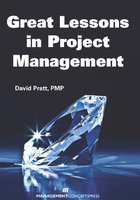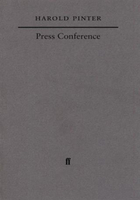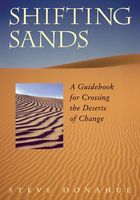Old Monkey Mind
No single thing abides, but all things flow.
Fragment to fragment clings; all things thus grow
Until we know and name them. By degrees
They melt and are no more the things we know.
—Lucretius
Nine hours we have happily worked the hillside together, a sixtyfive year old man and Thee Ancient One, a diesel crawler-tractor of indeterminate age and lineage. Thee roars and clanks across the ground, a squat, old creature with massive winch and rippers behind, dozer and brush rake ahead, roll cage overhead, and huge hydraulic cylinders left, right, and rear. It is more equipage than Thee was designed to bear, but she labors on nonetheless.
It was quiet and cold when we began at dawn on land savaged by a century of overcropping and abandoned decades ago to the ravages of wind and rain.Where scant soil remains, masses of poison oak and coyote brush have scabbed the land to begin the healing.
It is 1993, nine years since I abruptly severed all connection with the business world for life on the land. It is still hard to believe. After sixteen years of intense conflict with industrial age, command-and-control corporations; after thirty-five years dreaming of new concepts of organization and experimenting with them; after two impossible years bringing one of those dreams into being; after fourteen grueling years leading it to maturity— after all that, turning my back on Visa in 1984 and walking away at the pinnacle of success was the hardest thing I have ever done.
The reason is still difficult to explain, but it is not complicated. That inner voice that will not be denied, once we learn to listen to it, had whispered since the beginning, “Business, power, and money are not what your life is about. Founding Visa and being its chief executive officer is something you needed to do, but it's only preparatory.” Each time I resisted. “You're crazy! Preparatory for what, and where, and why?” there was no answer, only silence. In time the voice became incessant and demanding.
“Visa's not an end. Give it up, and the business world as well —completely—irrevocably—now! In time, you will understand.” It was frightening. It was maddening. I felt a damned fool to even think about it. A rational, conservative, fifty-five year old businessman who'd never smoked a joint or dropped a drug listening to inner voices? Absurd! Throw away a lifetime of work—success, money, power, prestige—as though it had no value in the vague hope that life had more meaning? Madness!
But the voice would not be silent. This was not my lifelong friend and companion, rational Old Monkey Mind, the certified expert of logic, talking. This was another voice entirely. And I knew it was right. In 1984, I abruptly left Visa and severed all connection with the business world, offering the only possible explanation. “I feel compelled to open my life to new possibilities.” No one believed it. Why should they? I could scarcely believe it myself. I hadn't a clue what those possibilities might be. But I intended to be open to them.
The nine years since Old Monkey Mind and I left Visa and opened our life to new possibilities have been good years, filled with things we deeply love—family, nature, books, isolation, privacy, the infinities of imagination—more than enough to make a fine life. From time to time, we hear that familiar inner voice with its old refrain, “This is not what your life is about. This is merely preparatory.” But we dismiss it as an echo.We long ago accepted that what has occupied us these nine years past are the possibilities we were meant to realize. How can we know that before the day ends we will step on one of those tiny jeweled bearings on which life turns, which will send us spinning in a new direction.
It has been one of those spirit-lifting, mind-soaring, diamond days. Hands and feet fly between brakes, clutches, hydraulic levers, gearshift, and throttle; nine levers simultaneously manipulated.We are a symphony of motion,Thee and me. No sissy automatic controls for us.Thee has been a good teacher. After nine years working together, motions require no conscious thought. We are not separate things. Thee manipulates my hands and feet as surely as I manipulate her pedals and levers. We function as a single system, recognizing one another's strengths, excusing one another's foibles, communicating in ways neither of us understand, expecting no more than the other can give. We are bound to the same Earth by the same gravity.We breathe the same air.We both move by processes of combustion and dissipate our excess heat into the same space.We are a microcosm of the infinite interconnectedness of all things: at once particulate and whole, self and not-self, at one with the universe.The work seems to do itself, leaving Old Monkey and me free to roam as we will.
Old Monkey Mind soon coaxes me into one of those deep thickets of thought we have been trying to penetrate these many years. Are machine and man inseparably connected and related in ways we can't comprehend? How and why did we begin to break everything apart in the rational mind? Is there any way to break things apart in the mind without eventually breaking them apart physically? Does the one breaking inevitably result in the other? Just who or what determines this breaking apart, locking our thoughts and lives into ever more confining boxes of specialization and particularity? Why and how did we begin efforts to make men behave like machines and to make machines behave like men? When and why did we begin to think of the Earth as separate from mankind; a warehouse of free material to make gadgets for consumption in a mechanistic money economy; a free dump for poisons and waste?
What if the very concept of separability (mind/body— cause/effect—mankind/nature—competition/cooperation—public/ private—man/woman—you/me) is a grand delusion of Western civilization, epitomized by the industrial age; useful in certain scientific ways of knowing but fundamentally flawed with respect to understanding and wisdom? What if our notions of separability, particularity, and measurement, useful as they may be in certain circumstances, are just momentary, mental aberrations in the mysterious evolution of consciousness?
Old Monkey and I have long chuckled at the absurd notion that mind, body, and spirit are separate things, like cogs, cams, and springs of a clock. We're certain that machines, people, and nature are not as separate as Francis Bacon, Isaac Newton, Descartes, and the science they spawned would have us believe. Science has insisted for two hundred years that the few pounds of gray matter in the bone box on my shoulders is nothing but electrical and chemical impulses flickering about between separate particles of matter in obedience to rigid, universal laws of cause and effect. Old Monkey and I don't think so. For all the wonders of modern science and its obsession with measurement, we believe life will never surrender its secrets to a yardstick. Body, mind, and spirit are inseparably one, and they are one with all else in the universe. We are not seduced by notions to the contrary.
Thee Ancient One and I have carefully worked our way around the half-dozen stunted Douglas fir that have found enough sustenance to begin forming a new forest. I have no design for the land. It will design itself, yet visions of how it might look covered with native grasses and flowers interspersed with groves of native trees flow through my mind. We have been laboring on these two hundred acres of pasture, hill, and forest for nine years. Early visions are already young reality.The first fields restored are deep in grass, surrounded by groves of fir, madrone, oak, and redwood carefully transplanted as seedlings from the surrounding forests.
Within three years, air and sunlight will transform the subsurface mudstone shattered by Thee Ancient One's rippers into clay.The clay will suck nitrogen from the roots of the grasses and mix with dying stems.Thousands of gophers, mice, and moles are at work, assiduously carrying grass underground and dirt to the surface.
Billions of worms, ants, beetles, and other creatures till the soil around the clock. Trillions of microscopic creatures live, eat, excrete, and die beneath my feet. In time, larger animals and birds will return to make their contribution. Porous soil will build to absorb and distribute water from even the heaviest storms, and lateral ditches that now control runoff can be filled. Each year grasses, flowers, shrubs, and trees will be taller, thicker, more diverse, and healthy.
Could this abundance of interdependent diversity be the deeper meaning of the biblical injunction to “multiply and replenish the Earth?” Could it mean that we are here to enable the multiplication and replenishment of all life on Earth, not just our own? Is it possible that the “nature” we are destined to subdue is really our own?
Thee and I work submerged in the roar of the engine and clank of tracks. Nose-tingling clouds of dust rise, spiced with the pungency of weed and brush crushed beneath the tracks. Four red-tailed hawks scream greetings as they float high above, scribing invisible parabolas in the sky before sliding swiftly down the slope of the wind, then rising again. Five jet-black vultures spiral into view, outspread wings powered by the wind, tip feathers spread like fingers against the sky. Thee is idled as I grab binoculars to join them for a quarter hour.A bit of glass before the eye and we are one, bird observed and bird observer.
Every feather moves in intimate, intricate converse with the wind. Language is such clumsy communication compared to that between breeze and bird. Inseparability and wholeness are everywhere about. Bone and feathers, flesh and spirit, space and time— wind, bird, sunlight, Earth, man—irrevocably interconnected, defining one another. All simultaneously competing and cooperating, separate yet inseparable, a whole of parts and a part of wholes, none in control but all in order.
Old Monkey and I are soon in another thicket of thought. Is it possible that in the deepest sense, everything is its opposite; that all things define, thus conceive, one another. It seems impossible to conceive of “thing” without the concept of “no thing.” Is there no bird without man, and no man without bird? Are there no borders except in the mind?
If the universe is truly a meaningless mechanism composed of separable, physical particles acting on one another with precise, linear laws of cause and effect as science has demanded we believe for two hundred years past, whence came these eternal questions which so fascinate Old Monkey and me? Why, at long, long last, can't science explain such simple things as love, trust, generosity, and honor?
For decades, Old Monkey and I have puzzled over man's desire for certainty and control, his lust for science. It led to a fascinating question. What would it be like if one had perfect ability to control?
It would be necessary to know every thing and every event that had ever happened, for how could one know what total control meant without infinite knowledge of past events and their consequences?
It would require omniscience about the future. Knowledge of every entity that could ever be and every event that could ever occur; when and how it would happen and every nuance of what the effects would be. One could never control that which could not be known until it happened. Mystery and surprise would be intolerable.
Even perfect knowledge of past, present, and future would not be enough for total control. It would be necessary to know the thoughts, emotions, and desires of every human being including self—all their hopes, joys, fears, and urges. And not just those other folks. It would be necessary to know everything that self might ever think, feel, know, or experience. Even beyond that, it would be necessary to be rid of all such emotions, feelings, beliefs, and values, for such things catch us unaware and affect our behavior. Compassion must go, love must go, admiration, envy, desire, hate, nostalgia, hope, along with every aesthetic sensibility. Perfect control would require absolute knowledge of everything that came before every before, and everything to come after every after, and so on ad absurdum.
But all this reveals nothing. It still leaves the question unanswered. What would it be like to be the possessor of total, infinite, absolute control? The first thought is that it would be akin to being a god, at least as gods are normally perceived. With a good deal more thought and more intuition, it hit Old Monkey and me like a bolt from the blue. It would be death. Absolute, perfect control is in the coffin. Control requires denial of life. Life is uncertainty, surprise, hate, wonder, speculation, love, joy, pity, pain, mystery, beauty, and a thousand other things we can't imagine.
Life is not about control. It's not about getting. It's not about having. It's not about knowing. It's not even about being. Life is eternal, perpetual becoming, or it is nothing. Becoming is not a thing to be known, commanded, or controlled. It is a magnificent, mysterious odyssey to be experienced.
At bottom, desire to command and control is a deadly, destructive compulsion to rob self and others of the joys of living. Is it any wonder that a society whose world view; whose internal model of reality is the universe and all therein as machine should turn destructive? Is it any wonder a society that worships the primacy of measurement, prediction, and control should result in massive destruction of the environment, gross maldistribution of wealth and power, enormous destruction of species, the Holocaust, the hydrogen bomb, and countless other horrors? How could it be otherwise when for centuries we have conditioned ourselves to ever more powerful notions of domination, engineered solutions, compelled behavior, and separable self-interest?
Tyranny is tyranny no matter how petty, well intended, or cleverly rationalized. It is that to which we have persuaded ourselves for centuries, day after day, month after month, year after year in thousands of subtle ways. It need not have been so in the past. It should not be so now. It cannot be so forever.
I am yanked back into the moment by a gust of wind laden with icy drops of rain.While we have wandered, the sky has darkened, the wind has picked up, and daylight has dimmed. No doubt of it, we're in for a heavy storm. Better hurry. Rain will soon saturate the soil and work will be impossible. A flick of the throttle and Thee Ancient One roars to life. We crawl across the land pushing a huge pile of brush toward the ravine. Unconsciously I slip out of harmony with my surroundings to take control of the situation. One hurried pass, then another and a third. Faster, faster— fifteen minutes more and the job will be done.
Thee Ancient One screams with metal on metal, bucks, and stops to the hammering of drive-wheel spokes jumping the track sprocket. Damn and double damn! Idiot! Fool! I would try to impose control and demand more than the situation required, or Thee could give. I shut down the engine and sit quietly in the rain as anger and frustration slowly drain away. I begin to grin. Plus one for Thee, ancient one. Minus one for you, old man.
I sit motionless for ten minutes, gradually returning to harmony with the whole, enjoying the sound of gusting wind, the first drops of cold rain, the ocean restless under darkening clouds, trees and grass in a supple dance with the wind. Everything is in its ancient, seamless rhythm of conflict and cooperation. The Earth, each blade of grass, each tree, the man, the tractor, the storm, each a whole of parts and a part of wholes, acting on and acted upon. Everything both infinitely understandable and infinitely mysterious, including an old man sitting on a tractor, smiling and running a hand over a stubble of whiskers on a crooked jaw.
Jogging the half mile downhill to the equipment barn, I slip into boots, rain pants, slicker, and hood. Into the back of the truck go steel crowbars, hydraulic jack, four-foot crescent wrench, shovel, and smaller tools. Rain is misting the windshield as I drive back to Thee Ancient One, silent on the hillside. Kneeling in the mud, positioning thirty pounds of crescent wrench to turn the huge nut controlling tension on the track is no piece of cake. Arms and shoulders are cramping before the track tension is released. Another half hour passes swiftly as wind and rain increase, alternately raising the front with the dozer blade and the back with the hydraulic jack until the ton of track hangs slack an inch above the mud.
With six-foot steel bars I leverage the massive track away from the frame and in line with the drive wheel.With a satisfying clank, the track settles into the sprockets front and back. Grinning, I struggle for three-quarters of an hour restoring tension to the track, removing blocks and throwing muddy tools into the truck. I drive down the half-mile hill to the barn in the rising fury of the storm.
Truck and tools safely parked in the barn, I call Ferol to assure her I will be at the house within the hour and extract a promise to turn on the sauna. Sucking a bloodied knuckle, staggered by gusts of wind, water sloshing in my boots, I laboriously climb the half mile of hill to where Thee Ancient One sits silent in the dark. She rumbles to life with the first revolution of the starter. Engaging the clutch, I revel in diamond slivers of rain dancing through the headlight as we roar down the hill to the dry barn while cold settles to the bone, making thoughts of the sauna grand.
At the house, rain-soaked clothes and boots are left draining in the mudroom. Shivering in a towel, I make a quick stop in a poor boy's dream realized. Four walls of books—several thousand volumes—leather chair, fireplace, and study with picture windows overlooking forest, valley, village, and ocean. In a stack of unread books, my eye is taken with the black jacket of a small volume in the center of which, bursting with light, is the picture of a small sand dune above a single word: Complexity.
Cold seeps from the bone as I lie in the heat of the sauna, book propped on a towel on my chest, scanning the introduction. I haven't the slightest idea that another of those tiny, jeweled bearings on which life turns has been placed in my path. Two chapters later, I set the book aside, shower, then settle into bed to read it through with growing fascination.
It is the story of a number of prominent scientists from several disciplines who formed a small institute to pursue their shared awareness that a new science might emerge from the study of complex, self-organizing, adaptive systems, which they refer to as “complexity.” They seem intrigued by the notion that the two-hundred year old scientific attempt to explain the universe and all it contains as mechanisms operating with precise, linear laws of cause and effect may be inadequate. Concern that pursuit of specialization, separability, and particularity may have led to a blind alley in ultimate understanding has brought them to a new, more inclusive way of thinking. Constrained by the specialization within universities, they felt compelled to set up a separate institute to pursue the “new science.”
They speculate that there is something about the nature of complex connectivity that allows spontaneous order to arise, and that when it does, characteristics emerge that cannot be explained by knowledge of the parts. Nor does such order seem to obey linear laws of cause and effect. They speculate that all complex, adaptive systems exist on the edge of chaos with just enough self-organization to create the cognitive patterns we refer to as order.
It is not so much the concepts that fascinate me.They seem like old, familiar friends. Many sentences and paragraphs contain language similar to that which I've used for years. They echo beliefs about concepts of societal organizations based on nature's way of organizing that I have developed and argued for decades. What fascinates me is that such concepts are now emerging in the scientific community in relation to physical and biological systems.
Nearly four decades ago, three questions emerged from the constant dialogue with Old Monkey Mind. They were fascinating then. They are compelling today. They had everything to do with the origins of Visa. Time and time again they return, always more demanding.
Why are organizations, everywhere, political, commercial,
and social, increasingly unable to manage their affairs?
Why are individuals, everywhere, increasingly in conflict with
and alienated from the organizations of which they are part?
Why are society and the biosphere increasingly in disarray?
Today, it doesn't take much thought to realize we're in the midst of a global epidemic of institutional failure. Not just failure in the sense of collapse, such as might occur to a building or a business, but the more common and pernicious form: organizations increasingly unable to achieve the purpose for which they were created, yet continuing to expand as they devour resources, demean the human spirit, and destroy the environment.
Schools that can't teach
Unhealthy health-care systems
Corporations that can't cooperate or compete
Universities that are far from universal
Welfare systems in which no one fares well
Agriculture that destroys soil and poisons water
Police that can't enforce the law
Unjust judicial systems
Governments that can't govern
Economies that can't economize.
Such universal, ever-accelerating, institutional failure suggests there is some deep, pervasive question we have not asked; some fundamental flaw in the ordering of societal relationships of which we are unaware. It suggests that intractable problems can only get worse until we ask the right questions and discover the flaw. Is this the great new frontier that awaits? Is this the societal odyssey that cries out to us all?
In the deep silence of the early morning hours, a chapter or two from the end of the book Complexity, I become frustrated by the long strings of adjectives, “autocatalytic, nonlinear, self-organizing, complex, adaptive, holistic,” with which the scientists attempt to explain their supposed new science. I rise and descend to the library to search through various lexicons looking for a suitable word. Nothing emerges. Why not invent a word? Since such systems are believed to emerge in the edge of chaos with just enough coherence and cohesion to result in order, I borrow the first syllables from chaos and order, combine them, and chaordic emerges. I begin to write a definition, trying to merge lifelong love of nature, sixteen extraordinary years creating such an organization, thoughts from the book, and conviction about the nature of institutions into a single, simple adjective.
chaordic kay'ord-ick adj. [fr. E. cha'os and ord'er] 1.The behavior of any self-organizing and self-governing organism, organization, or system that harmoniously blends characteristics of chaos and order. 2. Characteristic of the fundamental, organizing principle of nature.
I return to bed to finish the final chapters. My last thought before switching off the light is noted in the margin: “The hubris of science is astonishing. It will come as quite a surprise to countless poets, philosophers, theologians, humanists, and mystics who have thought deeply about such things for thousands of years that complexity, diversity, interconnectedness, and self-organization are either new, or a science.”
It is past midnight and the storm front has passed when memory takes me by the hand, leading me back to the origin of such thoughts. It was a very long time ago.














